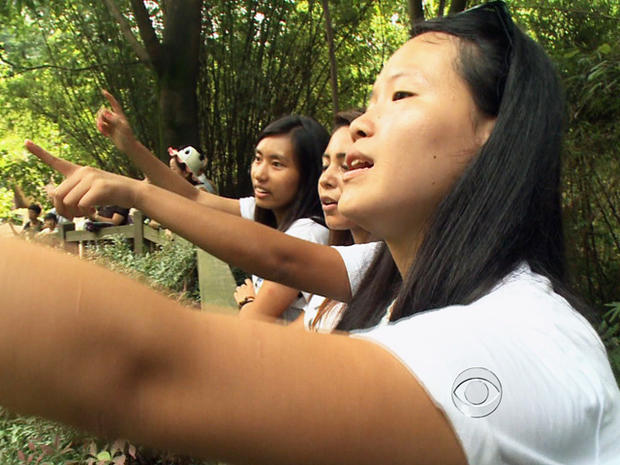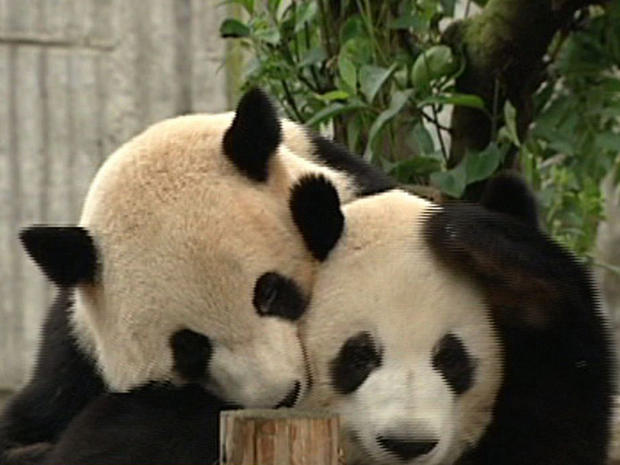Pandas threatened by China's booming economy
(CBS News) CHENGDU, China -- The Chengdu Research Base for Giant Panda Breeding is home to 74 giant pandas. Even here in China, every panda birth is celebrated.
But conservationist Sarah Bexell says there's a downside, too.
"It makes our job harder, because people tend to think that the problem is solved," she says. "Humans really think that we can fix everything with technology."
Bexell warns that the panda's natural habitat -- bamboo-filled, alpine forests in China -- continues to be destroyed to build the roads and factories that feed the world's desire for cheap goods manufactured here.
"The hard battle now is changing human behavior, and if we can't change human behavior, all of this was a waste of time," she says.
Bexell thinks that if humans continue consuming in the way we do, it's the end of the pandas.
Zoo Atlanta officials surprised by birth of panda twins
Panda Express: Two giant pandas FedExed to Toronto
Baby panda makes debut at San Diego Zoo
Asked if she believes that view is alarmist, she replies, "Yeah, sure, that's fine -- prove me wrong. I so want to be proven wrong. I dream about being proven wrong."
On this day, she stressed to American high school students that their habits can impact a panda's habitat.
Watch: Mother panda reunited with cub in Taiwan, below.
"The panda for China is like the Bald Eagle for the United States," says Maggie Shiffert, who was among the students on the tour of the Chengdu center.
"So to lose such a big part of your country and your heritage and what you stand for, I think it's really important to preserve that and to make sure that they stay around," she says.
It's believed 1,600 pandas live in the wild today. There were nearly 2,500 in the mid-1970s. The Chinese government has set up more than 60 nature preserves to try to protect the remaining pandas.
"I think the hard thing that every government has to balance is the demands of their people -- more mouths to feed, more bodies to clothe, more bodies to put in a house ... and environmental protection," Bexell says.
That balance is not tipping in the panda's favor, despite the promise and all the attention each birth receives.



